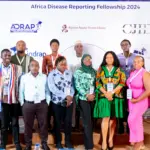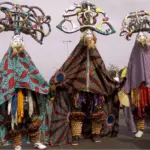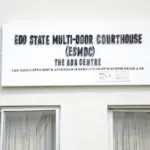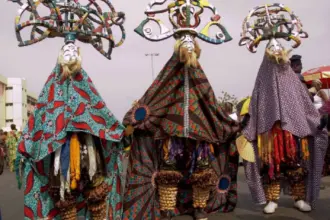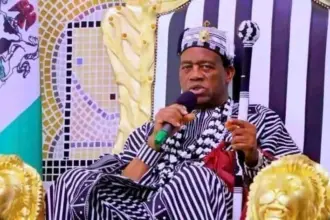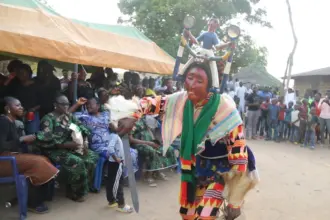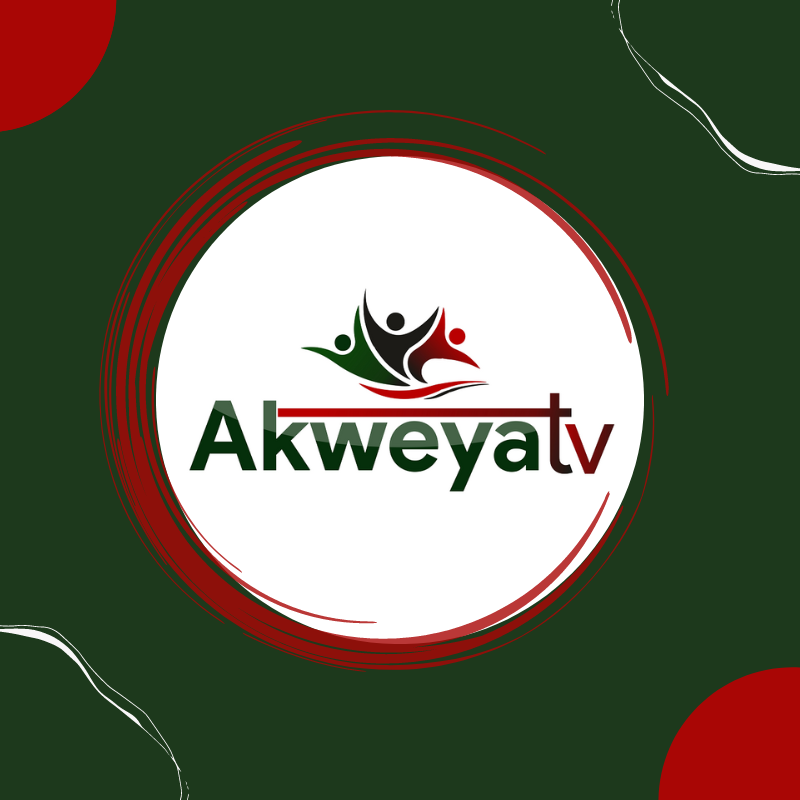According to information from the archives of the late Chief Akpallah Okenyodo’s research on history, the land dispute between Ejor Akpa and Ojije Utonkon started on March 30, 1976, when the people of the Ojije community started clearing the land to build their Universal Primary Education School (UPE) on the Ejor Market Square without permission. In the process, they destroyed the farm crops of yams, cassava, potatoes, cocoa, yam, and all the economic trees therein.
The people also destroyed and burned down the market stalls.
The incident was then reported to Och’idoma HRH Abraham Ajene Okpabi, the police, and other security agents. They held several peace meetings to appeal for peace between the two communities.
One of the peace meetings was convened at the Ejor Market on September 25, 1980. Chaired by His Highness, the Och’Idoma, HRM Abraham Ajene Okpabi, the meeting saw the participation of key stakeholders from both sides, including local government officials and community elders.
In his opening address, His Highness emphasised the criticality of peace at all levels of administration and recounted previous attempts at reconciliation. He urged honesty from representatives chosen to speak on behalf of their communities and emphasised the traditional nature of the land issue at hand.
 Representatives from both sides presented their perspectives. Mr. Akarakwu Agbenyi, representing Ejor Akpa, highlighted the history of peaceful coexistence and outlined grievances regarding a school built by the Ojije people, which disrupted market activities. He also mentioned the burial of local arms as a symbol of peace after a previous conflict.
Representatives from both sides presented their perspectives. Mr. Akarakwu Agbenyi, representing Ejor Akpa, highlighted the history of peaceful coexistence and outlined grievances regarding a school built by the Ojije people, which disrupted market activities. He also mentioned the burial of local arms as a symbol of peace after a previous conflict.
“When the war between Akweya and Utonkon ended, they both came together and buried the local arms used during the war as a sign that the war had ended. The place where the weapons were buried was agreed upon by both parties to be a significant sign of peace and to stand as the boundary between the two communities,” he stated.
The bone of contention in subsequent generations is the location of the exact place where the weapons were buried, as rain and other forces of nature have erased any sign of a burial place.
Mr. Stephen Ogbu, speaking for Ojije Utonkon, expressed appreciation for the peace talks but lamented the inability of local district heads to resolve the issue. He highlighted historical relations between the communities and disputed claims regarding the school and land ownership.
 Questions from local government officials sought clarification on various points, including the timeline of the school’s establishment and the location of the boundary. Both sides agreed that the burial site of local arms marked the boundary between their territories.
Questions from local government officials sought clarification on various points, including the timeline of the school’s establishment and the location of the boundary. Both sides agreed that the burial site of local arms marked the boundary between their territories.
Following deliberations and site visits to potential boundary markers, an agreement was reached, and representatives from both communities pledged to maintain peace. His Highness stressed the importance of avoiding further conflict and urged cooperation from all parties. The meeting concluded with a commitment from local government officials to expedite the resolution process. Joint undertakings were made by elected representatives to uphold peace until a final solution could be reached.
In a signed statement by Francis O. Oko, Secretary of the Idoma Traditional Council, the outcome of the meeting was recorded, marking a significant step towards reconciliation between Ejor Akpa and Ojije Utonkon.
Extract from the archives of the late Chief Akpallah Okenyodo’s research on history.


